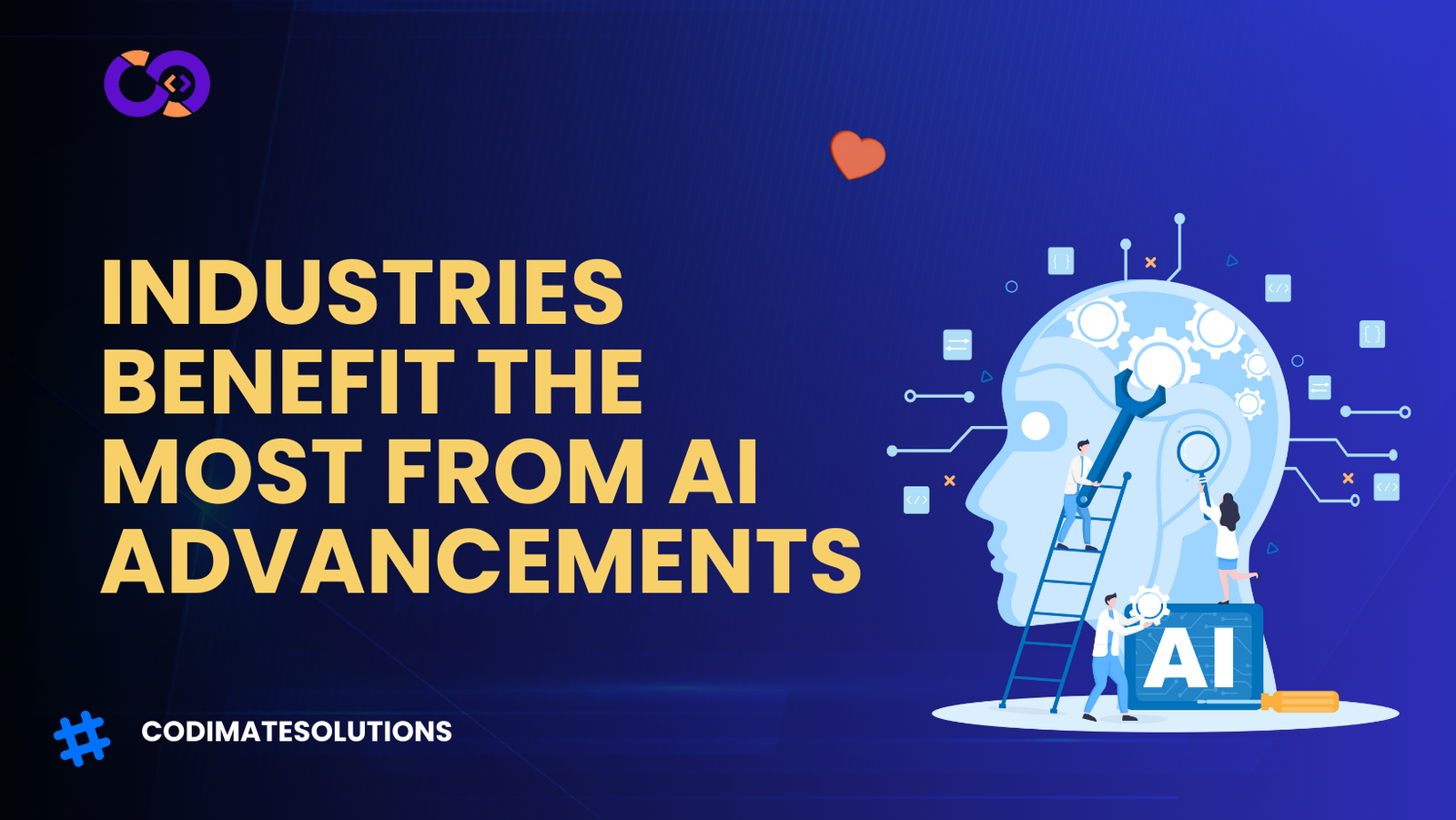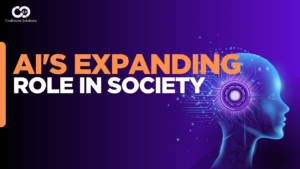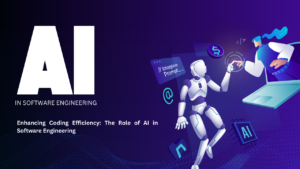What Industries Benefit the Most from AI Advancements?
Artificial Intelligence (AI) has rapidly transformed how businesses operate across various industries. From streamlining processes to delivering innovative solutions, AI is a key driver of change. Industries such as healthcare, manufacturing, creative design, customer service, and marketing have seen significant advancements with the integration of AI. This article explores the sectors that benefit the most from AI, highlighting how AI boosts efficiency, accuracy, and innovation.
- What Industries Benefit the Most from AI Advancements?
- 1. Healthcare: Enhancing Accuracy and Personalized Treatment
- 2. Manufacturing: Boosting Efficiency and Reducing Costs
- 3. Creative Design: Enabling Innovation and Speed
- 4. Customer Service: Enhancing Customer Experience
- 5. Marketing: Driving Data-Driven Campaigns and ROI
- Other Industries Seeing AI Impact
- Conclusion
1. Healthcare: Enhancing Accuracy and Personalized Treatment
AI is revolutionizing the healthcare industry by providing tools that enhance diagnostic accuracy, personalize treatment, and improve patient outcomes. Here’s how AI is making a difference:
a. Diagnostic Accuracy
- AI algorithms can analyze medical images (X-rays, MRIs, CT scans) faster and more accurately than traditional methods. This helps in early disease detection, improving patient survival rates.
- AI-powered tools assist in detecting conditions like cancer, heart disease, and neurological disorders with higher precision.
b. Drug Discovery and Development
- AI accelerates drug discovery by analyzing vast datasets, predicting outcomes, and identifying potential drug candidates. This significantly reduces the time and cost of bringing new drugs to market.
- AI algorithms simulate clinical trials, helping pharmaceutical companies develop effective medications with lower risks.
c. Personalized Healthcare
- AI-driven solutions analyze patient data to provide personalized treatment plans. This approach considers individual medical history, genetic makeup, and lifestyle, leading to better outcomes.
- Chatbots and AI-based virtual assistants offer real-time health advice, appointment scheduling, and medication reminders.
Related Topic: How AI is Changing the World of Digital Marketing
2. Manufacturing: Boosting Efficiency and Reducing Costs
The manufacturing sector has seen a surge in AI integration, leading to increased productivity, reduced operational costs, and enhanced quality control. Here are the key areas where AI is making a difference:
a. Predictive Maintenance
- AI-powered predictive maintenance tools analyze equipment data to predict when machines are likely to fail. This minimizes downtime and reduces repair costs.
- Manufacturers can schedule maintenance based on data-driven insights, avoiding costly interruptions in production.
b. Quality Control
- AI algorithms inspect products with high accuracy, identifying defects that may go unnoticed by human inspectors. This ensures that only high-quality products reach the market.
- Computer vision, a subset of AI, is widely used in quality control to analyze products for defects or deviations.
c. Supply Chain Optimization
- AI improves supply chain efficiency by analyzing demand trends, managing inventory, and optimizing logistics. This leads to cost savings and better resource allocation.
- AI-driven robots and automated systems streamline the manufacturing process, handling tasks such as assembly, packaging, and material handling.
Explore More: Is SEO a Good Career?
3. Creative Design: Enabling Innovation and Speed
Creative industries, including graphic design, video production, and content creation, are leveraging AI tools to streamline workflows and foster creativity. AI helps designers and artists in various ways:
a. Graphic Design Automation
- AI-powered tools like Canva and Adobe Sensei allow designers to create logos, banners, and social media graphics quickly. These platforms provide templates, AI-generated suggestions, and automatic adjustments to design elements.
- AI enhances the creative process by offering design recommendations based on industry trends and user preferences.
b. Content Creation
- AI-driven tools generate written content, headlines, and social media posts, saving time for content creators. AI can also assist in optimizing content for SEO, making it more engaging and discoverable.
- AI in video production helps edit videos, add special effects, and even generate animations, allowing for faster project turnaround.
c. Music and Art Creation
- AI algorithms create music tracks, generate visual art, and compose background scores. This opens up new opportunities for creative professionals, blending human creativity with AI capabilities.
- AI tools like DALL-E generate artwork based on text descriptions, pushing the boundaries of what’s possible in the creative space.
4. Customer Service: Enhancing Customer Experience
AI has transformed customer service by enabling faster responses, personalized experiences, and effective solutions to customer queries. Businesses across various industries use AI to enhance their customer service operations:
a. Chatbots and Virtual Assistants
- AI-powered chatbots handle routine customer queries 24/7, providing instant responses. This reduces the workload on human agents and improves customer satisfaction.
- Virtual assistants, like Siri and Alexa, offer personalized recommendations, handle inquiries, and assist with transactions.
b. Sentiment Analysis
- AI analyzes customer feedback from emails, social media, and reviews to understand customer sentiment. This allows companies to address issues proactively and improve their products or services.
- Sentiment analysis tools help businesses gauge customer satisfaction and identify trends that may impact their brand image.
c. Predictive Customer Support
- AI uses predictive analytics to anticipate customer needs and problems before they arise. This helps in offering proactive solutions and increases customer retention.
- AI-driven CRM (Customer Relationship Management) systems provide detailed insights into customer behavior, helping companies tailor their marketing strategies accordingly.
5. Marketing: Driving Data-Driven Campaigns and ROI
AI is reshaping the marketing landscape by enabling targeted campaigns, content optimization, and customer segmentation. Here’s how AI benefits the marketing industry:
a. Personalized Marketing Campaigns
- AI analyzes customer data to create personalized marketing campaigns, leading to higher conversion rates. Businesses can deliver targeted ads, emails, and content based on user preferences and behavior.
- AI tools like chatbots provide personalized product recommendations, improving customer experience and boosting sales.
b. SEO and Content Optimization
- AI-driven SEO tools help businesses identify keywords, optimize content, and track search engine rankings. This ensures that marketing efforts align with user intent and search trends.
- Content creators use AI to generate SEO-friendly articles, blog posts, and product descriptions, saving time and improving efficiency.
c. Social Media Management
- AI automates social media management, from scheduling posts to analyzing engagement metrics. This helps businesses maintain a consistent online presence without dedicating excessive time to manual tasks.
- AI analyzes social media trends, providing insights into what content resonates with audiences and guiding content strategy.
Explore More: Keyword Stuffing in SEO
Other Industries Seeing AI Impact
While healthcare, manufacturing, creative design, customer service, and marketing are the leading industries benefiting from AI, other sectors are also experiencing significant transformations:
a. Financial Services
- AI streamlines banking processes, fraud detection, and risk assessment, enhancing security and operational efficiency.
- AI-driven chatbots offer personalized banking services, and robo-advisors provide investment advice based on data analytics.
b. Education
- AI-powered platforms offer personalized learning experiences, adaptive learning paths, and online tutoring. This makes education accessible and engaging for students of all ages.
- AI helps educators track student progress, identify learning gaps, and adjust teaching methods accordingly.
c. Agriculture
- AI improves crop management, monitors soil health, and predicts weather patterns, enhancing agricultural productivity.
- AI-driven drones and robots assist in planting, irrigation, and harvesting, reducing manual labor and increasing efficiency.
Conclusion
AI advancements have touched almost every industry, driving efficiency, accuracy, and innovation. Sectors like healthcare, manufacturing, creative design, customer service, and marketing are reaping the most significant benefits, but the ripple effects extend far beyond. As AI continues to evolve, its impact will likely expand, leading to more opportunities and challenges across the global economy. The integration of AI tools is not just a trend—it’s a fundamental shift in how industries operate, opening doors to a more advanced and interconnected world.
To stay ahead of the competition, businesses should embrace AI technologies and explore how they can leverage these advancements for better outcomes, improved services, and a stronger market position. The future belongs to those who adapt and evolve with AI.




